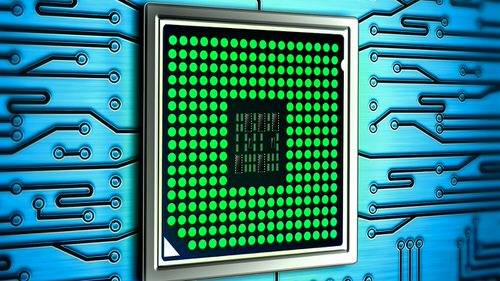
Quarterly earnings reports from the two major chipmakers seem to indicate an unusual trough, rather than a peak, at about the time Microsoft launched Windows 8.
For the fourth quarter of 2012, AMD reported a loss of $473 million on revenue of $1.16 billion, with revenue off by about a third compared to a year ago, with losses widening from $177 million. Last week, Intel reported net income of $11.0 billion on revenue of $53.3 billion for the same quarter, with profits falling 15% and revenue down just over 1%.
Both companies reported that PC sales were off more than they had expected; Intel’s PC Client Group revenue fell 1.5% sequentially and 6% year-over-year, to $8.5 billion. AMD chief financial officer Devinder Kumar reported that CPU revenue dropped by 13%, as computer makers took a cautious approach to selling Windows 8 PCs. Graphics revenue dropped 9%, also tied to PC sales.
Intel, widely viewed as the dominant microprocessor provider from both a sales and a strategic perspective, rode out the storm. Yes, the company said that holiday PCs sales weren’t as strong as originally expected at the beginning of the year, but that overall sales were nevertheless strong. Intel expects first-quarter sales to drop 6%, in line with normal seasonal declines.
“We think that there was an inventory drain and a worldwide supply chain for PCs in the fourth quarter,” chief executive Paul Otellini said. “Our channel checks would suggest that a lot of older generation Windows 7 PCs were burned off in the quarter.”
“Choppy” Outlook
Otellini didn’t talk much about the expected outlook for 2013. AMD chief executive Rory Read, however, did. And what he said wasn’t all that heartening.
“From my perspective, as I look at the PC market, that market’s going to continue to be choppy in 2013, particularly in the first half,” Read told investors Tuesday. “Remember when you go back to Q1 last year, there was a lot of concern about the flood, how it affected Thailand and the hard disk [market], and the… supply chain was quite resilient. The numbers were quite strong out of Q1. We think there will be continued chop and pressure in the first half of 2013. This market’s a bit dynamic right now.
“We do think that Win8 is a very important event in the industry,” Read added. “And I think that impact, or effect, will build over the course of the year. We expect the second half to be stronger than the first half from my perspective. As I look at the overall year, weaker in the first half, stronger in the second half, [overall] flat to slightly down. That’s our view of it.”
AMD’s Stuggles
AMD is struggling, no question about it. Any quarter where a company is forced to mention the minimum amount of cash it needs to maintain operations, as AMD did ($700 million, versus the $1.2 billion AMD actually has on hand) is not a quarter brimming with health and optimism. But AMD has positioned itself as a company executing some strategic changes, including investing heavily in the enterprise and its SeaMicro dense server business.
Still, AMD did some things right, actually managing to increase the selling prices of its products in a brutally competitive market. Revenue fell only because the amount of chips it sold fell as the PC market slowed down. Banking heavily on its “Trinity” APU, which combines CPU and graphics, would normally be a smart move.
“The downturn in the overall PC market hurt both Intel and AMD but appears to have hurt AMD more,” said Patrick Moorhead, a former AMD corporate fellow and now principal analyst at Moor Insights. “Servers are the bigger issue as it drives so much profit, but unfortunately AMD didn’t drive a lot of market share or profit dollars. Trinity was a good part but given [manufacturer] conservatism of not loading up for inventory during the holiday season, AMD felt the effects.”
So: unexpectedly low PC sales before and through the Windows 8 launch, plus a somewhat normal, seasonally slow first half of 2013. With a bit of a Windows 8 hangover, to boot. Will the market revive in the second half of the year? We’ll find out.
As we wait for Microsoft’s earnings on Thursday, AMD and Intel have filled in some key data points. The overall story still seems unchanged, however: Expect Microsoft to report a slow start for Windows 8.
Image courtesy of Shutterstock.

















